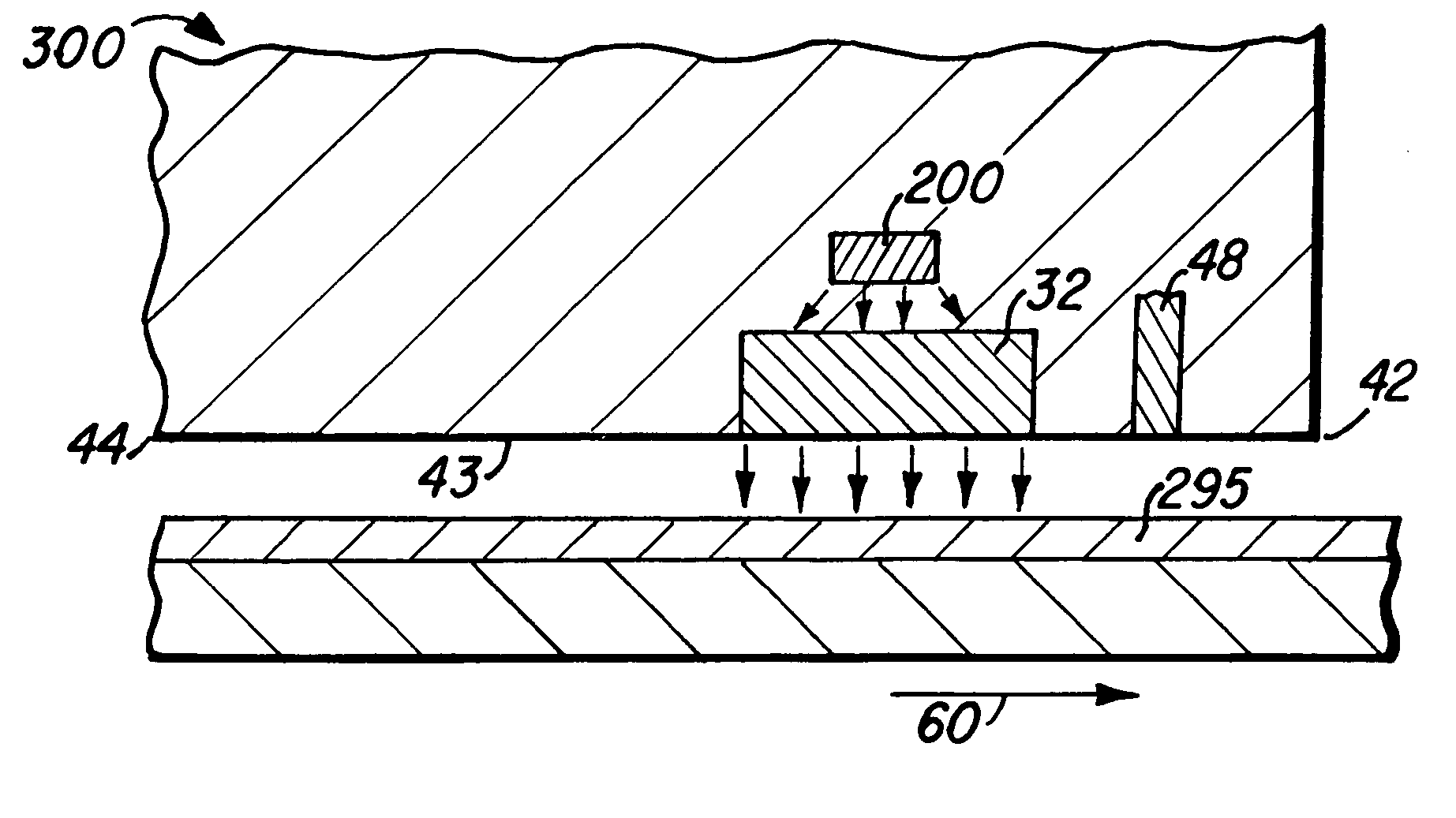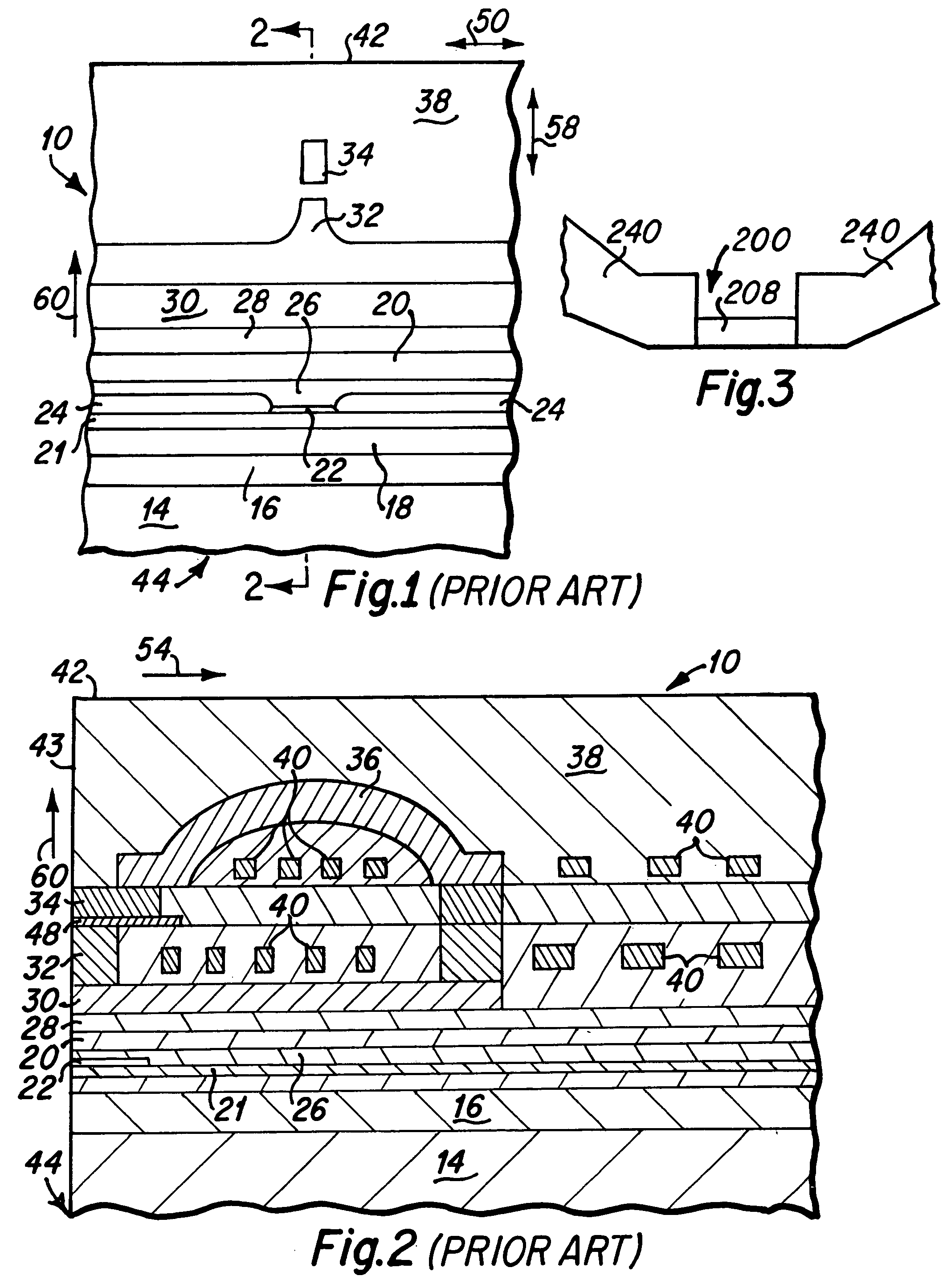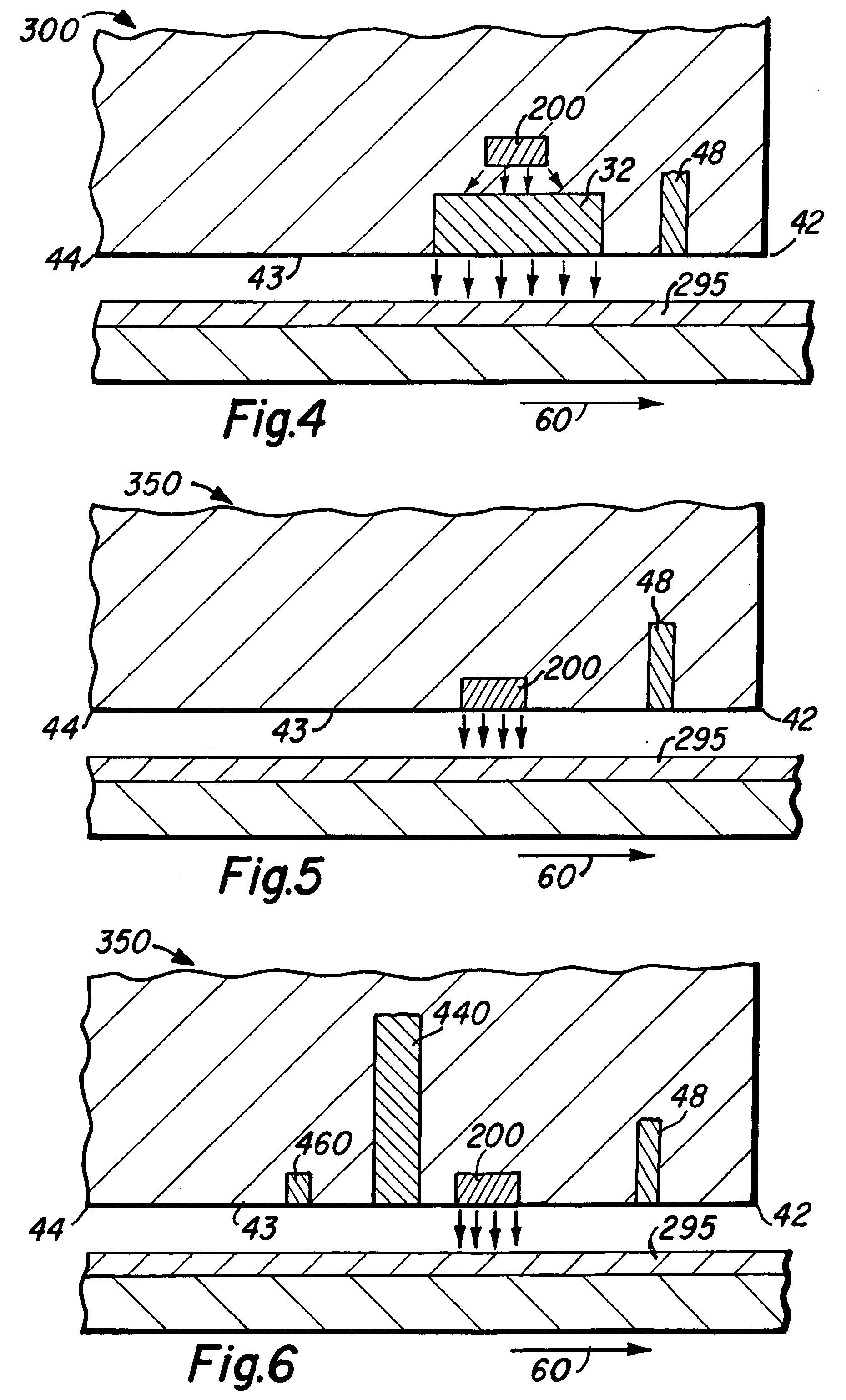Heating device and magnetic recording head for thermally-assisted recording
a technology of magnetic recording head and heating device, which is applied in the field of heating device and magnetic recording head for thermally assisted recording, can solve the problems of insufficient power efficiency, thermal erasure of the application of heat spots significantly larger than the track width, and the realization of such systems, so as to increase the dwell time of heating and effective heating of the media
- Summary
- Abstract
- Description
- Claims
- Application Information
AI Technical Summary
Benefits of technology
Problems solved by technology
Method used
Image
Examples
Embodiment Construction
[0035]Referring now to the drawings, and more particularly to FIGS. 1 and 2, a typical magnetic recording head 10 includes a first magnetic pole layer having two members, a P1 pole layer 30 and a P1P pole pedestal 32, and a second magnetic pole tip P2 34. FIG. 3 illustrates an inventive heating device 200 for a magnetic recording head, and FIGS. 4-6 illustrate magnetic recording heads in which a heating device 200 may be used to heat (e.g., directly or indirectly) the recording medium 295.
[0036]Generally speaking, for purposes of this Application, the term “width” will refer to a dimension in an across track direction (FIG. 1, arrow 50), the term “height” or “stripe height” will refer to a dimension in a direction away from the ABS of the magnetic recording head (FIG. 2, arrow 54), and the term “thickness” will refer to a dimension in a down track direction (FIG. 1, arrow 58).
[0037]The present invention may be used, for example, for large-area thermally-assisted magnetic recording. ...
PUM
| Property | Measurement | Unit |
|---|---|---|
| width | aaaaa | aaaaa |
| width | aaaaa | aaaaa |
| thickness | aaaaa | aaaaa |
Abstract
Description
Claims
Application Information
 Login to View More
Login to View More - R&D
- Intellectual Property
- Life Sciences
- Materials
- Tech Scout
- Unparalleled Data Quality
- Higher Quality Content
- 60% Fewer Hallucinations
Browse by: Latest US Patents, China's latest patents, Technical Efficacy Thesaurus, Application Domain, Technology Topic, Popular Technical Reports.
© 2025 PatSnap. All rights reserved.Legal|Privacy policy|Modern Slavery Act Transparency Statement|Sitemap|About US| Contact US: help@patsnap.com



